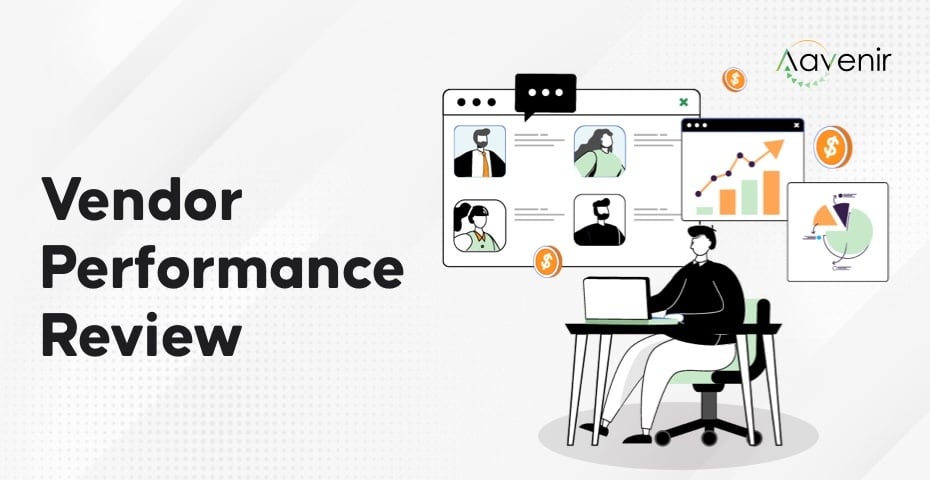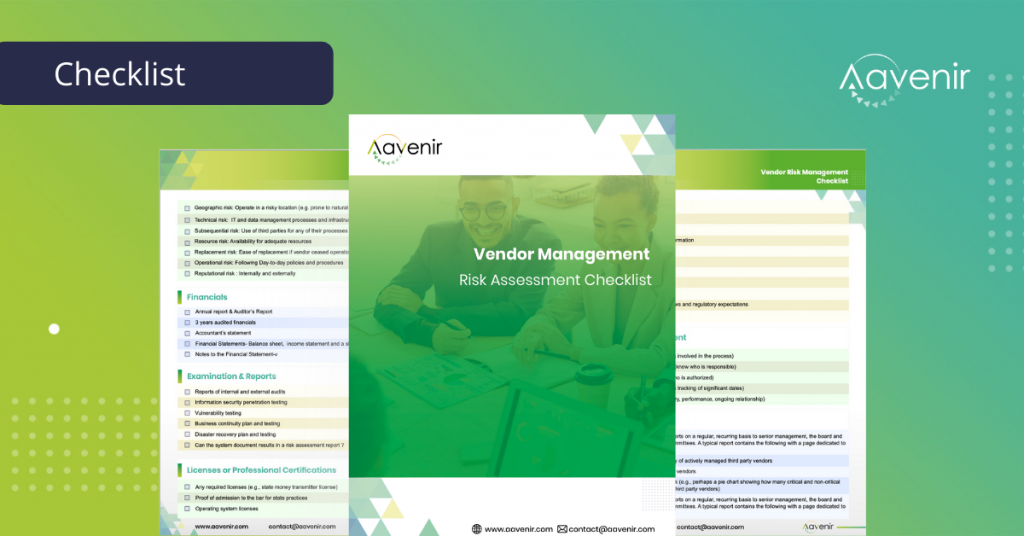What is Vendor Performance Review?
A vendor performance review is a systematic evaluation of a vendor's performance, typically conducted by an organization, to assess how well the vendor is meeting the agreed-upon contractual obligations and performance expectations.
The vendor performance review assesses how the vendor performs against each Key Performance Indicators (KPI) and Service Level Agreements (SLA) mentioned in the vendor's contract. Likewise, it should show non-contractual performance issues, for example, episodes that aren't estimated by a service level.

Understanding Vendor Performance Review
The relationships with strategic vendors are increasingly vital to business performance. When poorly managed, prominent strategic vendors can become complacent, slow-moving, and intractable.
Vendor performance review provides a tool with which an organization can assess a vendor against Key Performance Indicators (KPI) 's, Service Level Agreements (SLA) 's and other essential success metrics. The goals of a vendor performance review can include:
- Monitoring compliance of contractually agreed upon KPI's and SLA's
- Identifying areas where the vendor is not performing to expectations
- Partnering with the vendor to resolve low vendor performance
- Benchmarking the vendor's performance against similar vendors
- Resolving poor performance trends before they impact productivity
- Partnering with the business owner(s) to ensure they are engaged with and utilizing the vendor's services
Why should Organizations Focus on Vendor Performance?
Dealing with your vendor performance is an urgent part of monitoring. After all the difficult work that went into contract exchanges and due tirelessness checks to install another vendor, it would bode well that dealing with your vendor performance execution is a characteristic advance to fuse into your vendor management program.
Indeed, at specific associations that put stock in the worth of vendors, there are vendor performance managers whose sole obligation is to oversee execution guidelines and manage their standards. The fact of the matter is it's fundamental to deal with your vendor's performance effectively.
Here are three reasons why you should manage vendor performance:
- The option is what could be compared to driving blindfolded. Know which of your vendors represent a standing danger to your organization. Here is a helpful clue – they all do! So, think about these things to burrow considerably further and assist with forestalling an effect on your vendor management standing.
- SLAs are best: Vendor execution itself focuses on the authoritative language since administration levels ought to be set assumptions. Thus, you can monitor if your vendor is holding up their part of the bargain. A seller supervisor needs a few guardrails. The strong agreement that sets assumptions about turn times will assist the two players with understanding the significance of why the merchant execution can eventually end up being a make-it or break-it arrangement to the drawn-out relationship.
- There's no one-size-fits-all answer for outsider danger on the board: The equivalent can be valid when you apply execution principles to your sellers. Along these lines, you should audit them independently as opposed to making any mass suspicions.
How to Determine Which Vendors to Monitor?
There are only two questions all organizations need to ask before managing vendor performance.
These includes:
- If the vendor is about to fail in performance, how will this impact the operation and reputation?
- Is the vendor detrimental to the customer experience? With failure in performance as expected, what harm will this do to the customer?
If the answers provoke harming the customer experience or cause a negative ripple effect on the organization, you need to monitor the vendor's performance.
Explore Additional Resources to Know More

Frequently Asked Questions About Vendor Performance Review
Q: Why are vendor performance reviews important?
A: Vendor performance reviews help organizations gauge the effectiveness and efficiency of their vendor relationships, identify areas for improvement, address any issues or concerns, and make informed decisions regarding vendor retention or changes.
Q: How often should vendor performance reviews be conducted?
A: The frequency of vendor performance reviews can vary based on factors such as the nature of the vendor's services, the criticality of the vendor's role, and the contract terms. However, conducting reviews annually or on a quarterly basis is common practice.
Q: What criteria should be considered during a vendor performance review?
A: Criteria for a vendor performance review can include factors such as quality of deliverables, adherence to deadlines, responsiveness, communication effectiveness, customer service, compliance with contractual terms, and overall satisfaction of the organization. Refer to this: Vendor Evaluation Worksheet
Q: Who typically conducts the vendor performance review?
A: Vendor performance reviews are typically conducted by the organization's procurement or vendor management team in collaboration with the relevant stakeholders who have direct experience and involvement with the vendor's services.
Q: How are vendor performance reviews typically conducted?
A: Vendor performance reviews can be conducted through various methods, including surveys, performance scorecards, meetings or discussions with the vendor, analysis of key performance indicators (KPIs), and feedback from internal stakeholders.
Q: What should I do if a vendor's performance is unsatisfactory during a review?
A: If a vendor's performance is unsatisfactory, it is important to clearly communicate the identified issues or areas of concern to the vendor. Together, explore potential solutions and establish an action plan to address the deficiencies and improve performance going forward.
Q: Can vendor performance reviews lead to termination of the vendor contract?
A: Yes, vendor performance reviews can uncover significant performance issues that may lead to contract termination if the vendor fails to rectify the problems or consistently underperforms. However, termination should be considered as a last resort after attempting to resolve the issues through corrective actions.
Q: How can vendor performance reviews be used to enhance vendor relationships?
A: Vendor performance reviews provide an opportunity to engage in constructive feedback and dialogue with vendors. By highlighting areas of strength and improvement, organizations can work collaboratively with vendors to strengthen the relationship, align expectations, and achieve mutual goals.
Q: How should the results of a vendor performance review be documented?
A: The results of a vendor performance review should be thoroughly documented, including the identified strengths, areas for improvement, any agreed-upon action plans, and the timeline for reviewing progress. This documentation serves as a reference for future reviews and helps track the vendor's performance over time.
« Back to Glossary Index
